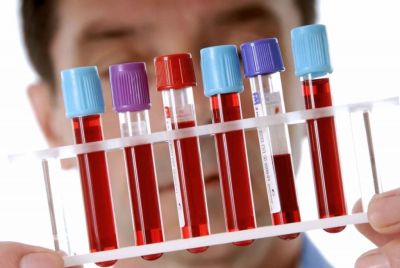| Additional tests | |
| Passing a blood test (dermatologist, smear, blood test on RW) | 700 |
| HIV testing | 300 |
| Analysis for Staphylococcus aureus | 540 |
| Analysis for brucellosis | 300 |
| Bacterial analysis for intestinal group (typhoid fever, Salmanella, Shigella) | 460 |
| Analysis for enterobiasis, worm eggs | 220 |
| Fluorography | 300 |
| ATT (certification) | 1260 |
| ADSM (diphtheria) vaccination | 200 |
| Vaccination with LCV (measles) | 200 |
| Hepatitis B vaccination | 500 |
| Hepatitis A vaccination | 200 |
| Dysentery | 200 |
| Therapist's conclusion | 300 |
| Conclusion ENT | 300 |
| Dentist's report | 300 |
| Narcologist's conclusion | 300 |
| Psychiatrist's report | 300 |
| Test for HBsAg, HCV (hepatitis B and C) | 400 |
| Conclusions of an otolaryngologist, dentist, analysis for Saphylococcus aureus | 540 |
| Diagnosis of Swine Flu A(H1N1) | 1300 |
If you are expecting a child, you must understand that pregnancy is not only a wonderful time, but also frequent visits to the doctor for monitoring and for urine and blood tests.
Do not think that this is a waste of time: such studies allow you to understand whether everything is in order with the health and well-being of the expectant mother, whether the development of the fetus is normal. And blood is the main indicator of problems in our body; it signals problems even when this cannot be determined visually or by sensations. One of the most important examinations is a test for antibodies in the blood. An antibody is a special type of protein produced by cells in our immune system. If such a compound is absent in the body, the person becomes susceptible to a certain disease. If it is, the disease will be much easier or even pass you by. Since susceptibility to various types of infections increases greatly during pregnancy, analysis becomes the only possible way to prevent potential danger.
The same analysis allows you to find out the Rh factor of the mother and father, as well as determine whether there is a Rh conflict. If the answer is positive, the pregnant woman is observed until the 32nd week of gestation. If this is not done, then the life of the unborn child is in danger, since the immediate development of jaundice, anemia, cerebral edema, hemolytic disease, etc. is possible.
Preparation for the procedure
To successfully take a blood test for group antibodies, you must first prepare. To do this, you will need to follow a diet, which is not at all difficult even during pregnancy, because women are “in an interesting position” and limit themselves in many ways. For example, 2-3 days before the procedure, you will have to limit the consumption of fatty, spicy and fried foods, not drink coffee and soda, and if you are taking any medications, then either refuse them or inform your doctor about taking medications .
By the way, many women resort to this examination when planning pregnancy, and not after it has already occurred. This allows you to draw up a plan for further actions in advance and calmly follow it if it turns out that there is a Rh conflict. But even if you didn’t bother with the issue ahead of time, there’s nothing wrong with that. Most of these situations, if their development is closely monitored, are resolved safely for both the mother and the fetus.
Our clinic constantly hosts promotions
What do the study results mean?
If the test result is negative, the likelihood of Rh conflict is low, no additional action is required. Repeated tests may be performed to exclude rare cases of false negative reactions.
Positive test results indicate the presence of specific antibodies in the blood. This indicates a high probability of Rh conflict. In this case, it may be necessary to prescribe measures to prevent hemolytic disease of the newborn and carefully select compatible donor blood.
Where can I donate blood for testing?
To take a blood test for anti-Rhesus antibodies, contact the medical office, located in the Moscow JSC and offering the services of its own modern clinical laboratory. In our clinic, consultations are conducted by highly qualified, experienced doctors who practice an individual, very attentive approach to patients and adhere to modern diagnostic and treatment methods. Our specialists have European-class equipment at their disposal, which gives the most accurate results in the shortest possible time.
You can find out the price of testing for antibody titers during pregnancy either on the clinic’s website or by calling. The administrator will sign you up for a convenient date and time and will answer all questions that arise during the registration process.
In what cases does incompatibility occur?
An immunological conflict in the AB0 system can theoretically arise if the mother and baby have different blood groups, namely:
- the mother has group I or III, the child has group II;
- for the mother I or II, for the baby - III;
- the mother has group I, II or III, the child has group IV.
The most dangerous combination is group I in the mother and group II or III in the child. This situation will most likely lead to conflict and the development of hemolytic disease in the baby.
Group immunological conflict is possible in married couples with the following combinations of blood groups:
- woman with I, man with II, III or IV;
- woman with II, man with III or IV;
- woman with III, man with II or IV.
It is important to note that women with group I, regardless of the Rh factor, find it most difficult to achieve compatibility. The only optimal option is if the man and the fetus also have group I. If a man has a different group, the risk of developing an immunological conflict increases.
Women at risk include:
- received blood transfusions;
- have had several abortions or miscarriages;
- already having children with hemolytic disease or mental retardation.
How does the Rh factor of parents affect the child?
It is known that if a woman has a Rh factor of “-” and a man has a Rh factor of “+,” then a serological conflict arises.
How does the Rh factor affect the unborn child?
Serological conflict is a disorder primarily affecting women with the Rh- blood type who have children with an Rh+ male. This phenomenon causes hemolytic disease of the fetus or newborn. The essence of the problem lies in the mother's production of antibodies that destroy the fetus's red blood cells. This leads to anemia and many other serious complications.
It should be noted that a serological conflict rarely occurs during the first pregnancy, since the mother's immune system does not yet produce antibodies to the Rh factor.
Rh conflict during pregnancy appears no earlier than 16 weeks after conception. If antibodies are not detected by 20 weeks of pregnancy, they are unlikely to appear.
Rhesus - conflict resembles a mechanism of defense against viruses, when resistance is formed by the immune system to destroy the “enemy”. While in the case of pathogenic microorganisms the phenomenon has a beneficial effect, in the case of a serological conflict the effect is completely opposite, since it causes pathological conditions in the child.
As a result of inheritance, the fetus receives antigenic characteristics from both the mother and the father. During pregnancy, due to the penetration of fetal blood cells into the mother's blood circulation with the antigenic characteristics of the father (which the mother does not have), the mother begins to produce antibodies directed against these antigens.

The most famous and important example of serological conflict is the difference in Rh cell antigens in the fetus and mother. The formation of antibodies in a woman's circulation occurs when the fetus inherits the father's "D" (Rh+) antigen and the mother has the "d" (Rh–) antigen.
The resulting antibodies to the Rh factor enter the baby's circulation and cause damage to blood cells, leading to hemolytic disease.
The mildest form of hemolytic disease is the destruction of a child's blood cells. The child is born with anemia, which is usually accompanied by an enlarged spleen and liver, but this does not pose a threat to his life. Over time, the blood picture improves significantly and the child develops correctly. However, it should be emphasized that in some cases anemia is severe and requires special treatment.
Neonatal jaundice is another form of hemolytic disease. The baby looks quite healthy, but on the first day after birth, a jaundiced color of the skin begins to appear. There is a very rapid increase in bilirubin, which has a toxic effect on the child’s brain and liver.
The final and most serious form of hemolytic disease of the newborn is generalized fetal edema. As a result of the destruction of the baby's blood cells by the mother's antibodies (still at the stage of intrauterine life), blood circulation is disrupted and vascular permeability increases. What does it mean? Fluid from the blood vessels leaks into nearby tissues, causing internal swelling to form in important organs, such as the peritoneum or the pericardial sac that surrounds the heart. Unfortunately, edema is such a serious pathological condition that it usually leads to the death of the child in the womb or immediately after birth.
Prevention
Recommendations for preventing the development of blood group conflict:
- try to avoid abortions, as this increases the likelihood of complications during subsequent pregnancies;
- observe preventive measures against infection with infectious diseases (flu, hepatitis), which weaken the body of the expectant mother;
- undergo routine examinations during pregnancy in a timely manner;
- Be careful when carrying a baby so as not to provoke placental abruption.
Modern medicine has many means to prevent the development of blood group conflict. The specialists of the Mother and Child clinics will do everything possible to maintain the health of the expectant mother and baby.
anti-Rhesus serum during pregnancy
I’m probably writing more for myself, otherwise everything will be forgotten later and some details may not be remembered.
In general - childbirth. After 4-5 months I can say that it doesn’t hurt at all and in general I would easily go to give birth to a second one. =))
In general, the contractions began around 7 pm somewhere, until 2 am they were quite tolerable, which allowed me to take a normal swim and prepare an apple pie for my husband from all the leftovers in the refrigerator. As my mother later told me, it was an incredibly delicious pie. At that time it was difficult for me to say how it turned out. So, I endured until the morning, at 7 am I called the doctor, who in turn scolded me for not calling right away and are you patient? Well, you know, the weather outside was minus 30, and my poor husband didn’t sleep well for several days. I felt sorry for waking him up. And then it was difficult for him to realize that I was having contractions, he didn’t believe me. So he said, “Go to sleep, we’ll see in the morning, maybe after lunch we’ll go give birth.” Even when we were already driving in the car in the morning, he kept asking, “Can’t you wait until the afternoon, you should get some sleep.” I remember that he infuriated me very much, I remember how he drove along the tram lines on the paving stones, as if there were no other streets. I wanted to kill him, because during the contractions I was in so much pain because the car was shaking!!! Initially, we agreed that he would go to my birth and he would be my partner, but feeling that he did not understand me at all, I sent him home and told NO ONE to come to my birth.
In general, I was greeted at the reception by angry, tired women at 8 a.m. during shift change; they had to behave decently, since I was connected to my connections. They forced me to change clothes, give everything that was unnecessary to my husband, and asked for my identification, and then I remembered that I had left it somewhere at home, well, ok... I asked, “Would a driver’s license be okay?”, in general, they let me through with a license. We looked at the dilation, it was already 6 cm. I was already mentally imagining how I would give birth in 2-3 hours. I asked to have an enema, sorry (I just suffered from constipation at the end of my pregnancy, and I understood how much I would need this enema), and then it turned out that my GI in the LCD forgot to rewrite some tests. I had to donate blood along the way. They weighed me with my belly, the weight was about 72-73, I don’t remember exactly. I asked the doctors approximately how much my baby would weigh, to which they all (several doctors) answered 3300-3500, that my tummy was not big and the baby would be average. The wards turned out to be full of women in labor, my doctor (head of the department) said that they were all being discharged and that after lunch the ward would be vacated for me. Well, in general, she sent me to an empty maternity room for a caesarean section, changed me into their shirt, and sat me on a ball. And it was 9 in the morning, next door there was a ward for natural births. And all these girls screamed so much that sometimes it became creepy. Well, I started to reassure myself that everything was ok, I wasn’t scared, breathe, sing, talk on the phone, eat chocolate, drink water, go to the toilet opposite, read Twitter, talk to women in the corridor. As a result, I did not dilate =( my doctor checked 3 times until 3 o’clock in the afternoon, and my dilation was only +2 cm. In the end, they decided to puncture the bladder, since everything went on for a painfully long time. My doctor turned out to be a very decent and good woman. She completely helped me refused anesthesia, and for a long time resisted piercing the bladder. She said that there was no need to interfere with the natural process of childbirth. I didn’t understand then, but now, having read so much literature about children’s health, I am grateful to her for all this. You CAN’T interfere with the birth process so as not to harm the baby harm, the same cerebral palsy is the result of interventions (this is dedicated to pregnant girls who suddenly read me). In general, my mother did not listen to me and came to the birth in a white medical coat, which played a good role, Because all the midwives and even my doctor took her for doctor, and tried even better. Thanks to my mother, because at times I was incredibly scared. But out of spite, I decided not to give in. There was one midwife who mocked me for singing and laughing (this was when I slowly opened up), she She said that a little later I would cry and beg for help. To which I actually said to myself “you can’t wait BITCH!!!”, and answered out loud “I won’t cry, I will rejoice!!!”. Actually, every time this motivated me, I listened carefully to my doctor, how and what to do. In moments of respite, she kept saying out loud, “I’ll soon be happy! Be patient, baby!” By the way, I gave birth on a bed, actually I don’t care how I’m a firstborn, but I prepared in advance, read carefully how it’s done. There were some minor problems; the baby still couldn’t position his head correctly in the birth canal, he kept spinning around. This complicated the birth; they turned on CTG for me every 2 minutes, and I asked him to be smart. Of course, I had a hard time because the painful contractions dragged on, but I still gave birth without anesthesia. And I felt how nervous the doctor and my mother were, but in my heart, I didn’t even want to think about anything bad, and mentally prayed while the contractions were going on that the baby would be born easily, that his head would stand correctly. And literally after a while everything came together. I pushed, and almost in one push I gave birth to a baby, at that moment I simply didn’t hear and couldn’t even stand to endure the second push. And the baby flew out, and an incredible cry was heard. Now I understand that it was dangerous, I could have broken the child’s collarbone or suffered a birth injury. So girls, don’t rush, be patient, you won’t die, believe me, the main thing is not to harm the baby!!! I remember my doctor’s words that the baby was big. The midwife put him on my chest and covered him with diapers, and my baby screamed and jerked with his whole body, he was sticky and wet. Of course, I’m bad, and at some point I say “here’s my little frog.” Mom began to diligently squeeze out my boobs, which was painful, she put the baby’s head to my boobs, and he immediately began to suck greedily. I remember how the doctor (!) was sewing me up, and at that moment they called my mother on the hundredth, congratulated her and asked her to give me the phone, the baby was crying under her boobs, and imagine I answered them something else. Then it turned out that the baby weighed 3900, and everyone was of course surprised, to which the doctor said “that’s why it was difficult for you to give birth to him and you tore.” It also turned out along the way that he was Rh positive, and then I was immediately injected with anti-Rh serum since I was Rh negative. The funniest thing I remember was when, after all the births, they pressed on my stomach to let out excess blood, then I yelled to the midwife - “stop tormenting me, please!” I’ve already suffered enough!” By the way, it seems to me that this particular squeezing was more painful than stitching probably. I remember that I couldn’t move, couldn’t even stand up at all. My mother and doctors lifted me up. But after about 3 hours I remember that I came to my senses, I even walked. And it was tough. Fortunately, everything is forgotten. The first day I could barely drag my feet. And it also turned out that I live alone in the ward, that my mother and no one else at all are allowed. And I remember how my mother, when leaving home, really yelled at me “if you drop the child, I’ll kill you!!!”...))) and then all sorts of children’s nurses came and taught me something, but I really couldn’t listen to them. Firstly, I became deaf from the incredibly piercing scream of my baby (by the way, they later told me that he screamed wow...loudest of all), secondly, I didn’t sleep and was tired, thirdly, these nurses talked to me as if I gave birth on the 10th and that’s all I know. I remember that one of them swore at me so that I wouldn’t put the baby with me. By the way, in the delivery room I swore with her that I was not going to give the vaccine to the child on the first day. In general, screw everyone... I put the child next to me and looked at him for a long time, and we lived like this on my bed for 3 whole days, and I answered all the doctors and pediatricians that I had ruptures and it was painful for me to insert them, much less wear them. hands, which is exactly what happened. In general, I think I annoyed everyone there, since the maternity hospital is a state-owned hospital, there is not even a paid department, I infuriated them with everything that I was connected to my connections and that I was using this connections to the fullest. Well, I called my doctor at every moment I didn’t understand, especially when the pediatrician yelled at me because the child had a reaction. Well, yes, I ate tangerines before giving birth, after all, the New Year was just around the corner! so what now? You can’t yell at me, I might start to feel depressed!! =)) in general, this depression struck on the 3rd day. It was my birthday on December 21, I remember that I began to remember all the insults inflicted on me since childhood, and so on... and I’m already sobbing loudly, I want to go home, and I’m crying into the phone HOW UNFAIR IT IS TO BE ALONE IN YOUR DAY !!! And right at the moment of flooding with tears, the doctors came in for a round, knowing that it was my birthday, and seeing me like this, all in tears, they gave the go-ahead for discharge. In addition, the baby suckled well and there were no practical problems. Perhaps diathesis, but even then the Masyans injected demidrol and everything went away. In general, I was immediately happy and my baby and I rushed home!!!
I was picked up after 3 o’clock in the afternoon by my closest relatives, my mother and my husband and my sister and hers. In fact, we made the latter godparents to our baby. They bought us an incredibly expensive beige envelope for discharge! And then a stroller... and then we were a month, two, three... and now we’re four.
Now my baby is lying sniffling and sleeping next to me))) And when he falls asleep he strokes my hands...))) just like that... is it scary to give birth? bullshit!!!
PS That bitch who mocked me later got punched in the horns, by the way, everyone praised me for my good behavior during childbirth. So don't wait for us to cry! We will be glad that we became mothers!!!
Rhesus conflict: why does this happen?
Each person has a blood type (O, A, B or AB), and also has a Rh factor (positive or negative), a protein that coats red blood cells. If the protein is on the cells, the person is Rh positive; if not, the person is Rh negative. In this case, the child may have the blood type and Rh factor of one of the parents or a combination of both.
The difference in blood type between a pregnant woman and her child causes Rh incompatibility. The condition occurs if a woman is Rh negative and her baby is Rh positive.
A serological conflict occurs when a small amount of the baby's blood enters the mother's bloodstream for the first time. This usually only occurs during childbirth, because the blood of the baby and mother do not mix during pregnancy due to the placental barrier between them; however, this can occur as a result of miscarriage, intrauterine surgery, bleeding, ectopic pregnancy, etc. When Rh (+) blood cells enter the mother's bloodstream, her body begins to produce antibodies (such as IgM and IgG) against the D-antigen present on the red blood cells of the fetus. These antibodies can cross the placenta and attack the baby's red blood cells, leading to the development of hemolytic anemia.
Once Rh antibodies have been formed, they remain forever in the woman’s body. As a result, all subsequent pregnancies with an Rh-positive child are at greater risk of developing hemolytic anemia and other pathologies.






